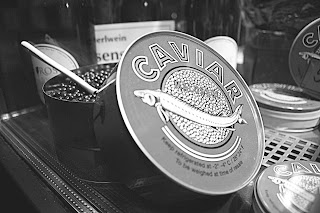Caviar, the exquisite delicacy of fish eggs, has been revered for centuries as a symbol of luxury and indulgence. Its price tag, often reaching astronomical figures, has left many wondering why this seemingly simple pleasure carries such a hefty cost. To understand why caviar is so expensive, one must delve into its unique production process, rarity, and cultural significance.
Scarce Supply and Labor-Intensive Harvesting
Caviar is primarily sourced from the roe of sturgeon, a prehistoric fish species found in select regions worldwide. Sturgeon populations have significantly declined due to overfishing, habitat loss, and poaching. As a result, legal caviar production has become highly regulated and limited, contributing to its scarcity and high demand.
Moreover, harvesting caviar is a meticulous and labor-intensive process. Sturgeon can take many years to reach maturity and produce roe, making the breeding process time-consuming. Additionally, caviar extraction requires skilled professionals who delicately handle the eggs to ensure their integrity and preserve their quality. This combination of limited supply and laborious harvesting adds to the high cost of caviar.
Lengthy Maturation Process
Unlike many other luxury foods, caviar does not undergo any processing or cooking, which means the quality directly depends on the fish's environment and diet. Sturgeon's natural habitat plays a crucial role in the taste and texture of the caviar it produces.
Sturgeon typically take anywhere from 8 to 20 years to mature, and even then, not all sturgeons produce caviar of the same caliber. As a result, the lengthy maturation process directly impacts the available quantity and quality of caviar on the market.
Controlled Farming and Aquaculture
In response to the declining sturgeon populations, many countries have established controlled sturgeon farming and aquaculture facilities to regulate caviar production. These farms closely monitor the sturgeon's environment, diet, and overall well-being to create optimal conditions for caviar production.
However, producing high-quality caviar through aquaculture is a time-consuming and expensive endeavor. These farms invest substantial resources in research, technology, and strict monitoring to ensure the sturgeon's welfare and the caviar's superior taste. The substantial investment involved in aquaculture significantly contributes to the elevated cost of farmed caviar.
Cultural and Historical Significance
Throughout history, caviar has been associated with royalty, prestige, and celebrations. Its association with high-status events, such as royal banquets and diplomatic receptions, has elevated its cultural significance and demand.
Caviar's allure as a luxurious delicacy has been perpetuated by its inclusion in fine dining establishments and its portrayal in popular media. The strong cultural demand for caviar further intensifies its exclusivity and, consequently, its price.
High Import and Export Taxes
The international trade of caviar is subject to various regulations and taxes due to the importance of preserving sturgeon populations and preventing illegal harvesting. Governments impose high import and export duties to protect endangered sturgeon species and discourage the illicit trade of caviar.
These taxes, coupled with the rigorous customs inspections, add to the overall expense of caviar, making it even more inaccessible to the average consumer.
In conclusion, the luxurious status and exorbitant price of caviar can be attributed to a combination of factors. Its rarity and labor-intensive harvesting, coupled with the lengthy maturation process and controlled aquaculture, all contribute to the high production costs. Furthermore, caviar's rich cultural history and association with high status have bolstered its demand in upscale circles.
Ultimately, caviar's price tag reflects its unique nature as a rare and sought-after delicacy, making it a symbol of indulgence and luxury for those who can afford it.





.jpg)


No comments:
Post a Comment